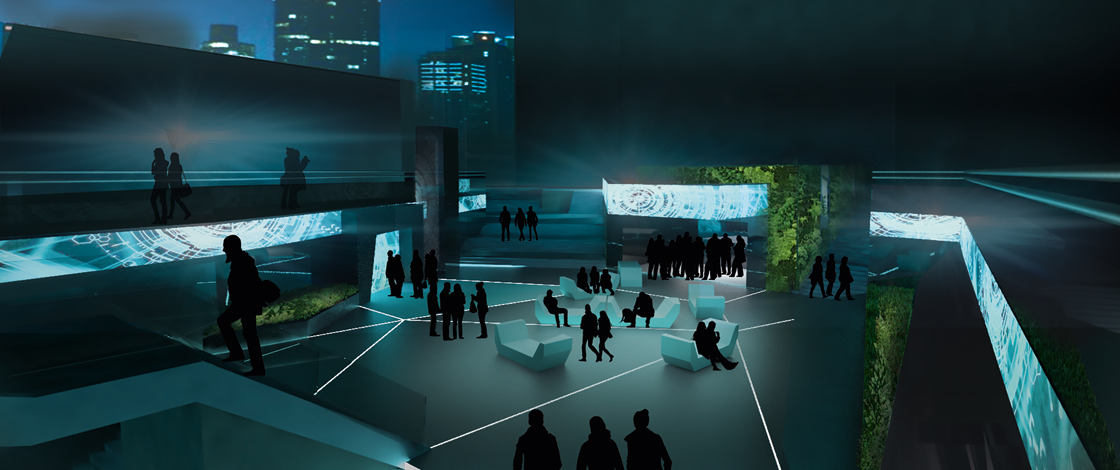Two Electronic Music Museums to Open in Germany

Despite decades of critiques to the contrary, it appears as though electronic music culture was actually built to last. You’ll see (and hear) testament to this in Germany, which will have not one but two electronic music museums by 2017.
MOMEM, the Museum of Modern Electronic Music, will debut in Frankfurt, Germany, in 2017. The project is self-funded but is being supported by the city of Frankfurt, which has provided a free lease on a space to house the multipurpose facility.
“Either they said this is a short fashion thing anyway, or it’s only a drug thing…but I have always seen the artistic and creative approach of this culture, that it was changing people’s lives and people’s senses. At least, it changed mine.”
The MOMEM space is part of the property where the Kinder Museum Frankfurt is located—that’s the city’s children’s museum—to give you an idea of the type of vote of confidence being bestowed here. Electronic music culture is for everyone.

“Having experienced, followed and participated in this cultural movement in various forms since the beginning of the ‘80s, I was always confronted with the fact that this movement was way underestimated by most people—whether journalists, music critics, music industry or people from the art and culture scene,” says MOMEM cofounder Alex Azary.
He’s heard about electronic music’s fleeting nature for decades now. Decades and decades.

“Either they said this is a short fashion thing anyway, or it’s only a drug thing, or it’s music of low quality and so on, but I have always seen that there was way more to it, especially that it was more than only music or going out for the weekend,” he asserts. “I always saw the artistic and creative approach of this culture, that it was inspiring people of different cultures and different scenes; that it was not only a music and cultural movement, but even a youth movement; and last not least, that it was changing people’s lives and people’s senses. At least, it changed mine.”
Azary and partner Andreas Tomalla (aka Talla 2XLC) have been entrenched in the electronic music scene since the early ‘80s and have extensive resumes as DJs, event promoters, label heads, media moguls and much more. They’ve weathered the fly-by-night genres, trends and people, and their time in the game gives them tremendous perspective.
“When Talla came up with the idea of setting up a museum, I had to think about this first for some time,” Azary remembers. “I’m quite aware that most people of the ‘scene’ basically prefer to go out and have a good time, rather than going into a museum and looking at exhibits. Thinking about this more intensely, I realized what this music scene has achieved and changed in the past 30 years and that this goes way beyond music or clubbing.
“It also affected other creative fields such as graphics, design, artworks, art, photography, video, technology, fashion and so on. So basically, I realized that a museum for electronic music, on one hand, has to show all of these fields, [and] it has to be more than simply a museum as we know it. It has to be a lively place, an experience of sound and senses, and it also has to host all sorts of events—like readings, lectures, movie nights, an academy, club events and concerts.”
MOMEM’s plans are to incorporate all of these ideas and more, taking macro looks at scenes and eras, as well as hyper-focused exhibits that highlight particular scenes, labels, cities, artists or designers. An academy component will benefit from a wide network of DJs, producers and executives who are keen to share their knowledge.
“We will present the development of electronic music since the late ‘70s, with all its genres and subgenres, the places where it happened, and where each style and sound was developed,” he says. “We don’t want to be a simply retrospective place; we want to be a place in the here and now, following and displaying current scenes as well as future developments. But as I mentioned before, we want to show more than just the musical development and the places and clubs where it happened, but the complete range of creative fields that were inspired, influenced and evolved from this club culture.”
“I look forward to seeing how they put techno in a museum as techno,” shares Dimitri Hegemann, founder of the legendary Tresor club and label in Berlin, who is currently conceiving a creative village in Detroit. “It’s great that the city of Frankfurt is giving them space. They should give the Frankfurt scene even more spaces, not only for museums but for clubs as well, since we haven’t heard from Frankfurt as a club capital for a long time. New clubs would be even more important for Frankfurt.”

In the great-minds-think-alike department, Hegemann reveals that he also plans to open an electronic music museum in Berlin, which is about 340 miles from Frankfurt, in the fall of 2016. That’ll be just in time to celebrate the 25th anniversary of Tresor, as well as the continuation of one of the most enduring brands in electronic music.
“I will call it the Living Archive of Elektronika, ‘cause techno here in Berlin is still a living, inspiring and vivid movement,” says Hegemann.
MOMEM is currently in fundraising mode, speaking with potential private investors and looking into possible cultural and government grants, and they’re on the hunt for amazing artifacts from artists, DJs and other scene makers. Contact MOMEM through the official website or Facebook page to offer potential artifacts or inquire about investment opportunities.


